Fragrance holds a profound place in Japanese culture, serving as a bridge to achieving a Zen state of mind. Rooted deeply in Zen Buddhism, both in its Indian origins, Chinese formalisation and Japanese interpretations, the use of scent is not merely about pleasure but about fostering a serene and mindful existence.
From the ancient art of Kōdō incense ceremonies to the soothing aromas of traditional Japanese baths, discover how these scents are used in The Land of the Rising Sun to help cultivate a tranquil and centred life.
Kōdō Incense
Kōdō, which translates to “the way of incense”, is an ancient Japanese art form with a long history. It has developed into a very sophisticated cultural practice that goes beyond the simple act of burning incense. Kōdō ceremonies offer a multisensory experience intended to cultivate mindfulness and inner peace and are steeped in tradition and etiquette.
Attendees of a Kōdō ceremony take in the delicate scents of carefully chosen incense woods in a calm and soothing environment. Some woods, like sandalwood, which has a creamy, calming scent, and agarwood, which has a deep, woodsy aroma, are carefully prepared and burned in accordance with certain procedures.
It’s not just about the smell; it’s also about paying close attention to how the smoke moves and enjoying the aroma in the company of others. This methodical and deliberate way of using incense greatly adds to the general calming effect of the Kōdō ritual.
Read: The quintessential guide to relaxing aromas for every room in your home
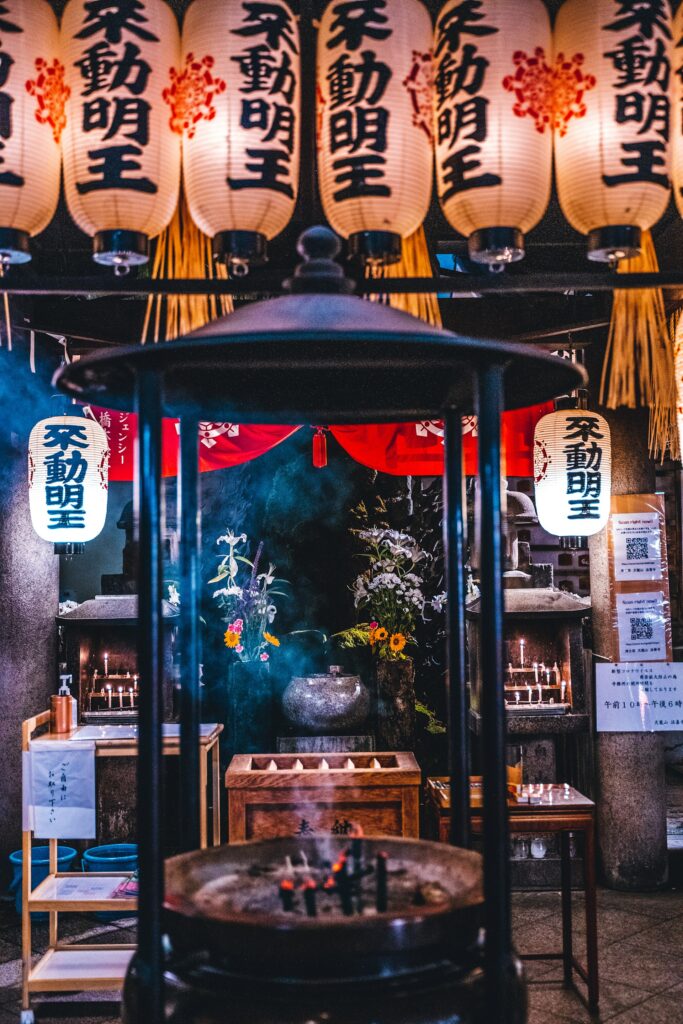
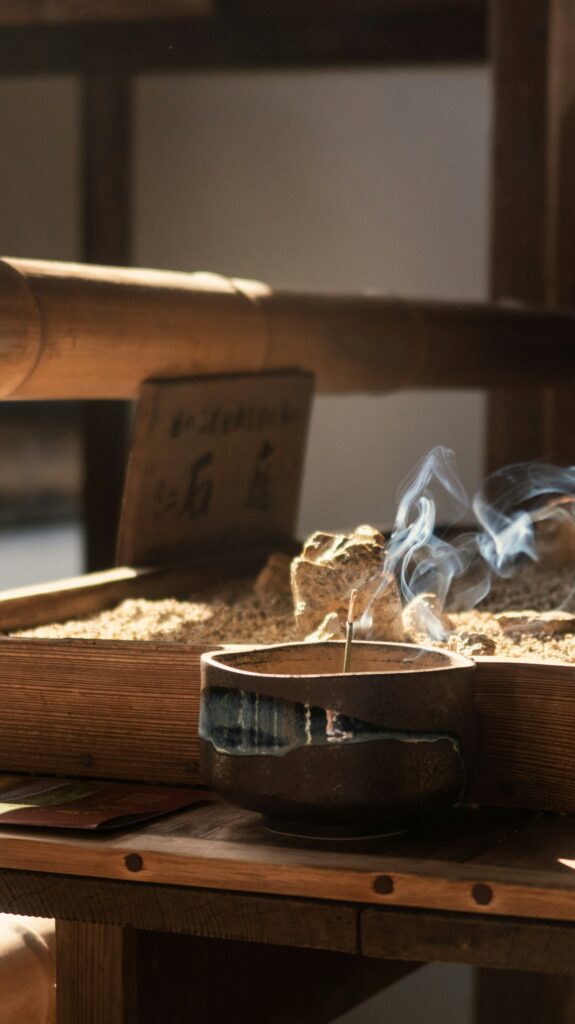
Other Incense Varieties
Apart from the incense used in Kōdō ceremonies, Japan has several other incense scents, each with special qualities related to relaxation.
Floral incenses evoke a sense of springtime renewal and tranquillity. Examples of such fragrances are sakura (cherry blossom) and hinoki (cypress). Woody incense, such as jinko (made from the leaves of the maidenhair tree) and kyara (a rare and valuable variety of agarwood), provide a rich, balancing scent that encourages mindfulness.
Japanese fragrances are often centred around earthy aromas, such as green tea with its fresh, vegetal aroma and mugwort with a slightly herbal scent help people feel more connected to nature and more at ease. These varied scent profiles provide a range of olfactory experiences and cater to personal preferences, all of which are helpful in promoting calmness and inner tranquillity.
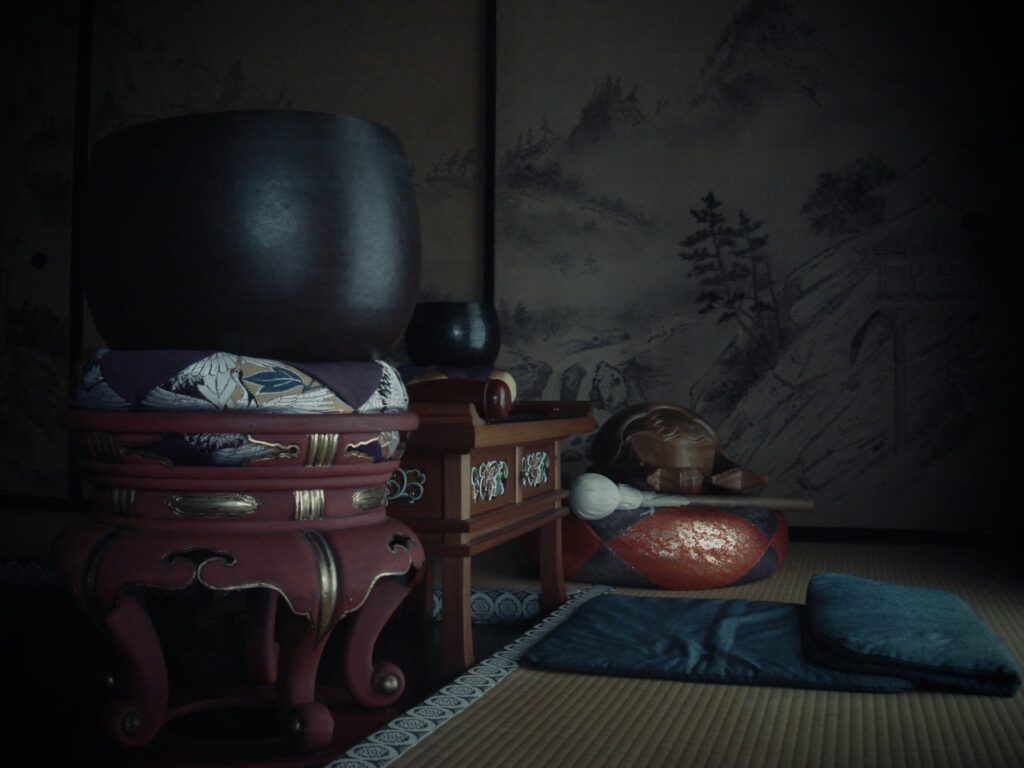
Essential Oil Scents
In Japan, the use of essential oils for therapeutic purposes – aromatherapy – is becoming more and more popular. With the invention of aroma diffusers, modern technology has made it easier to use essential oils in daily life. On the other hand, the popularity of aromatic baths, spas and saunas have led to an increasing use of authentic yet modern fragrances in daily life.
The aromatic molecules of essential oils, sourced from a range of plants, are released into the surrounding air using aroma diffusers. Various native plants in Japan are used to extract essential oils, many of which have been shown to have calming effects.
For example, lavender essential oil is widely available in Japan and is a popular relaxation oil worldwide. The citrus fruit yuzu, which is indigenous to East Asia, has a distinct and uplifting aroma that is said to foster feelings of calm and peace.
Another popular essential oil is shiso (perilla), which has a fresh, slightly spicy scent that is both invigorating and calming. Additionally, the sweet and floral aroma of osmanthus, a native flowering plant, is cherished for its ability to soothe and uplift the spirit.
People can design a unique and calming aromatic environment in their homes by using essential oils and aroma diffusers in their everyday routines.


Aromatic Bath Salts
In Japan, taking a bath has great cultural significance and is closely linked to the ideas of self-care and relaxation. Sento, or traditional Japanese baths, have long been important hubs for relaxation and social contact in Japan. Many Japanese households prioritise having a luxurious at-home bathing experience in the modern era.
An abundance of aromatic bath salts and powders are easily accessible to improve this ritual. These products frequently contain natural ingredients, such as citrus fruits like grapefruit and the aforementioned yuzu, which have energising and stress-relieving scents, or hinoki (Japanese cypress), which is known for its calming, woodsy aroma.
Additionally, the inclusion of matcha (green tea) bath salts, with their fresh and slightly grassy scent, can provide a rejuvenating and detoxifying experience. The subtle, sweet fragrance of plum blossom bath salts is another favourite, known for its ability to relax the mind and body.
The modern Japanese bath greatly enhances a sense of relaxation and well-being, thanks to the combination of warm water, the delicate fragrance of bath additives, and the act of self-care itself.
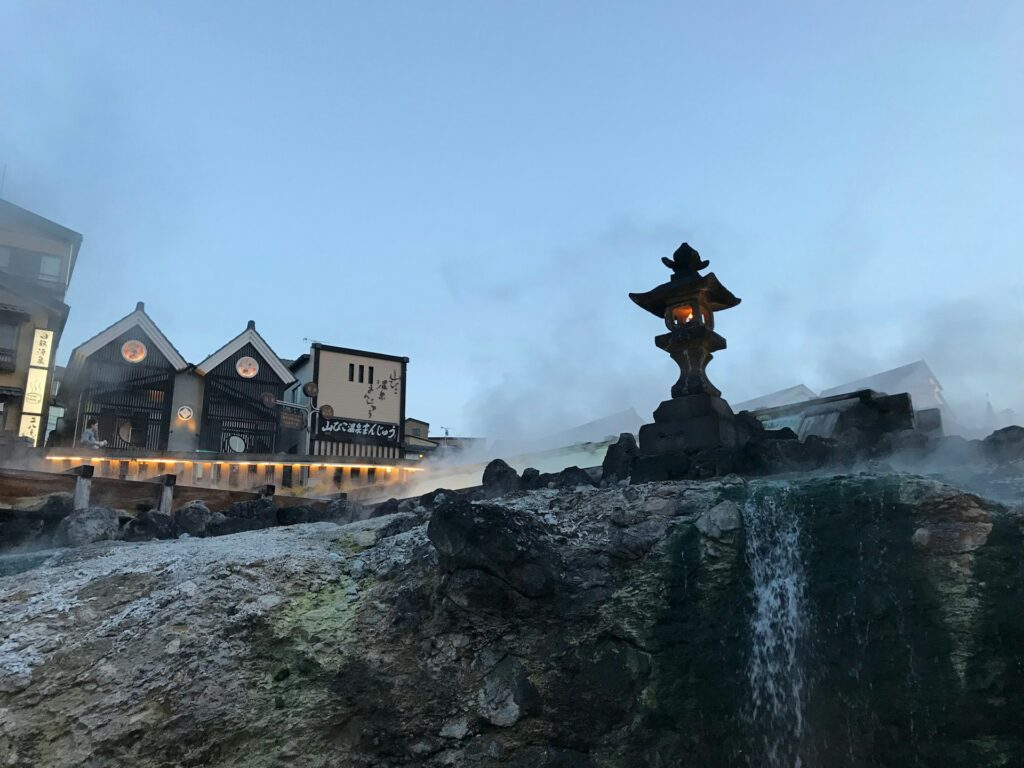
Onsen: The Natural Hot Springs
In addition to sento, Japan is renowned for its onsen, natural hot springs that are rich in minerals and believed to have therapeutic properties. Onsen baths are a cherished part of Japanese culture, offering a unique and deeply relaxing experience. The mineral content of the water varies by location, providing different health benefits such as improved circulation, relief from muscle pain, and skin nourishment.
The experience of soaking in an onsen is often enhanced by the surrounding natural beauty, whether it be mountains, forests, or coastal views. The combination of the warm, mineral-rich water and the serene environment creates a profound sense of relaxation and rejuvenation.
Many onsen also incorporate aromatic elements, such as adding yuzu fruits to the water during certain seasons, which not only enhances the sensory experience but also provides additional health benefits. The scent of yuzu, with its bright and uplifting citrus aroma, is particularly popular during the winter solstice, known as “Yuzu-yu”.
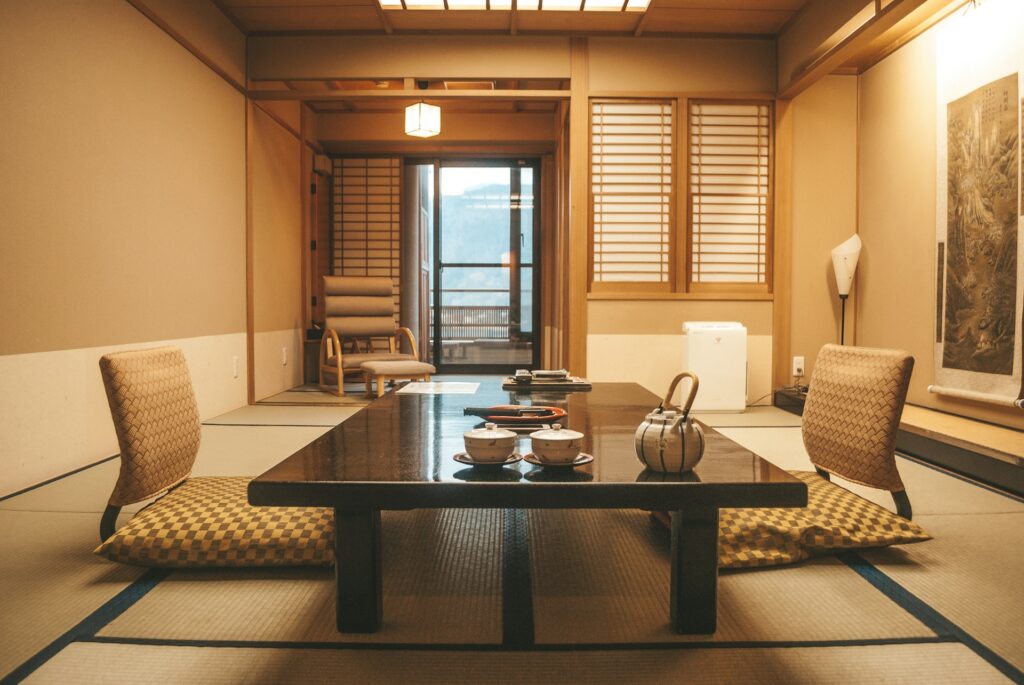
The Aroma Of Tatami Mats
Tatami mats, traditional Japanese flooring made from rice straw and woven rush grass, have a distinctive and soothing scent that is deeply ingrained in Japanese culture. The fresh, grassy aroma of new tatami mats is often associated with purity, simplicity, and a connection to nature.
Tatami mats are commonly used in Japanese homes, tea rooms, and temples, and their scent is an integral part of the Japanese living experience. The natural fragrance of tatami is said to have calming and grounding effects, making it an ideal addition to spaces intended for meditation, relaxation, and mindfulness practices.
Over time, as tatami mats age, their scent evolves, becoming more subtle yet still retaining its earthy and comforting qualities. This enduring aroma serves as a reminder of the passage of time and the beauty of natural materials.
The Bottom Line
Japan’s open arms (and open nostrils!) embrace of subtle aroma brings with it a mindful approach to relaxation, inviting us to slow down, appreciate the present moment, and find solace in the beauty of scent – whether through a dedicated Kōdō ceremony or simply enjoying a fragrant bath.
Next up, why not join us for some Japanese etiquette tips? Could come in handy, after all!





